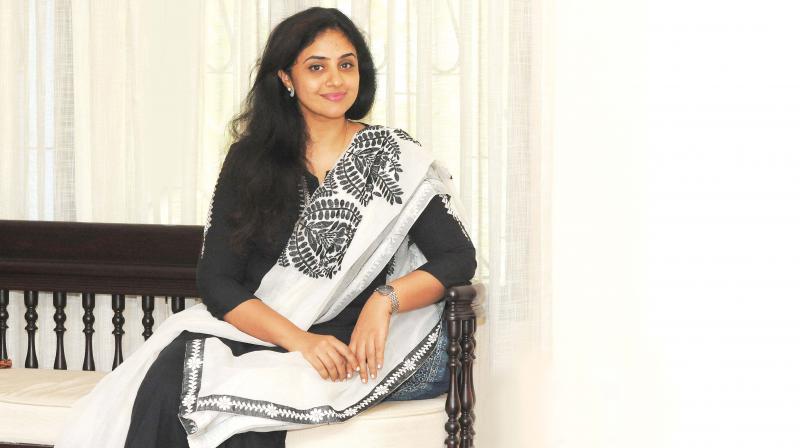Dancing to the tunes of life
Danseuse Methil Devika shares her love for dance, emotional bond with the capital city, family and professional life.

The tone of her message appears strict. You judge too soon, Methil Devika will not tolerate indiscipline. But an hour into the conversation breaks all such hasty prejudices — Devika smiles easily, and patiently narrates the many tales of her changing relationship with dance, her connect to Thiruvananthapuram, where she now lives with her actor husband Mukesh, about her son and her parents, pushing off the 12 O’ clock appointment for us.
She has just finished curating two dance festivals in Thiruvana- nthapuram — the Chilanka festival and the Guru Gopinath national fest. “It is in Thiruvananthapuram I began my Mohiniyattom classes as a six-year-old with Girija Chandran teacher. I was raised in Dubai and when we wanted to visit our Palakkad home, we’d land at the capital city — only Thiruvananth- apuram had an airport those days. And because my mom was so sick of my mischief, she sent me off to the nearby dance school,” laughs Devika. But dance had come into her life much earlier, at one when she got her first set of ghungroos and at two when she began Bharatanatyam with Kalaimani S. Naratajan.
Even so, for the longest time, Devika thought she will not become a professional dancer. She was too psyched by the study of dance, to think of turning a performer. “I didn’t think of a dance form just as entertainment. I wanted to know why it is done like this and not that, why something was called a varnam...”
“I remember taking up the Natya Shastra as a ninth grader.” Somehow it seemed natural that she took an MBA and then an MA, specialising in Kuchipudi. She was also one of the foremost to be qualified for the UGC/NET eligibility for lectureship in performing arts. She submitted her PhD thesis to the Bharathidasan University in Tamil Nadu in 2013, and propagated the first off-campus course. She was also one the youngest to be empanelled in SPIC-MACAY.
Thiruvananthapuram had again played a role in her life, when she chose to be a performer, appearing consistently for the Soorya Festival. But all that background in Kuchipudi meant her shift to Mohiniyattom was frowned at by many. “I am not bothered about purists. To a foreigner, all the classical dance forms look the same, except for the costumes. It is the same technique, what differs is the energy, the speed. Even these names had been coined in the 20th century.” When she went for a South East Asian tour, she saw how the art form (Mohiniyattom) could touch hearts everywhere, she found people flocking at a mall where she performed. And in Taiwan, one Buddhist monk came to her after a performance to give her all the money he had with him.
Not one to fear trying something new, Devika came on board for a play with Mukesh when they took to six stages with Naga, an adaptation of Girish Karnad’s Nagamandala. She had her fears despite the many stages she’s been on. “I have not done vocal acting before. And I was playing something I was not — an innocent 17-year-old.” And standing opposite her was a seasoned actor, Mukesh. He didn’t give her tips, she says. “When he said the dialogues should not be said in this tone, the director — Suveeran — said it is fine,” she laughs.
Mukesh is all for women empowerment, but he’d also want women to work in the kitchen, Devika says on a humorous note. He is very much family-oriented and would like her to travel with him to his shooting locations, but she hardly does. But then he didn’t accompany her when she forayed into film-acting. “It was only one day’s work,” she says of her work in Humans of Someone, an anthology feature. “I agreed because I loved the visuals, they were very aesthetic.”
And now she is conceptualising a second play with Mukesh, a Purana-based one. Work — an overload of it — seems to suit her ways, only regret is spending less time for her 10-year-old son Devang. “I spend for him only one tenth the time my parents had spent for me, to pursue my interests. For a woman, art is directly proportional to the health of one’s parents. As a child, they took me around, and when I had a son, they took care of my son,” she says, and remembers how her late dad used to call her every time to know if she’s reached back home.

